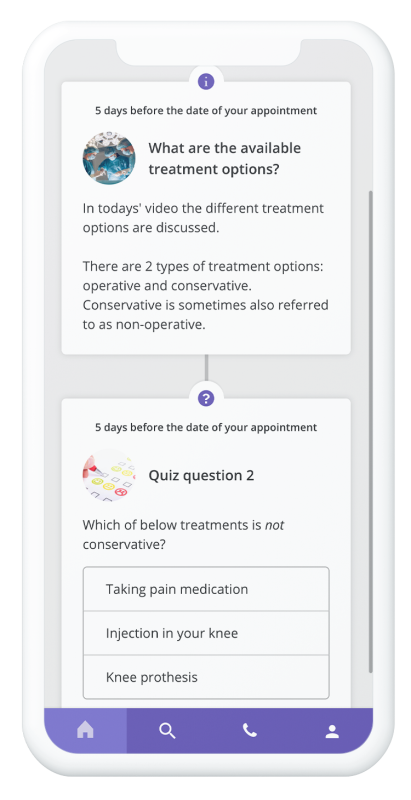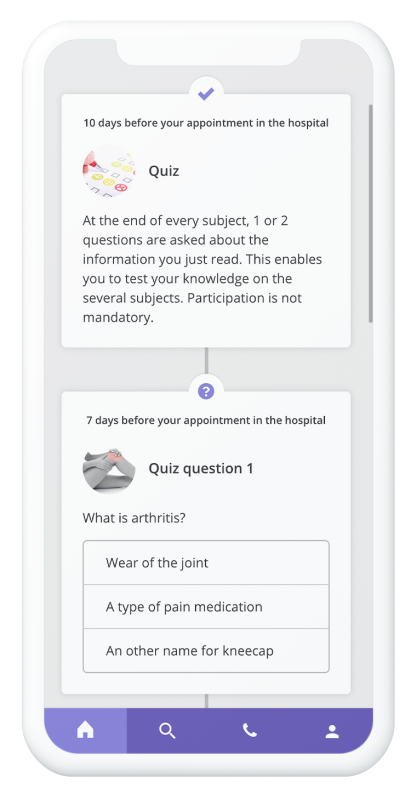
In collaboration with several hospitals, CEO Thomas Timmers has performed scientific research on the effect of increasing medical knowledge of patients by offering timely information in phases through an interactive app.
On this page we will give you some more detailed information on what "Shared Decision Making" is, how you can apply it in your hospital and elaborate on the results of the scientific study that was performed with Patient Journey App.
 |  |  |
 |  |  |

In modern healthcare the focus is shifting towards "Shared Decision Making". The more medical knowledge the patient has on their disease and treatment options, the better they can take part in the process of making decisions with their healthcare team.
"Shared Decision Making" has a positive effect on patient satisfaction, therapy compliance and healthcare outcomes. Current patient education usually takes place via consults which are not always the most efficient way to convey information.
Several tools can be used to increase the possibility of taking part in "Shared Decision Making". We use an app along with online questionnaires and old-fashion flyers to increase the knowledge of patients.
The scientific study that will be elaborated on below investigates the benefits of providing patients with information in a subdivided, categorised, and interactive manner via an educational app.

A sample of 213 patients were referred to one of six participating hospitals with knee complaints that were indicative of knee osteoarthritis. In addition to the standard information, they also signed up to Patient Journey App which actively sent them information through push notifications in the weeks before consultation.
The study consisted of a control group of 122 patients and 91 patients in the intervention group. After the intervention, the actual level of knowledge of patients making use of the app was 52% higher than patients not using the app. In addition, the perceived level of knowledge of the app group increased 22%. The control group showed no increase.
From this scientific research, it can be concluded that actively offering patients information in a subdivided (per day), categorised (per theme), and interactive (video and quiz questions) manner significantly increases the level of perceived knowledge. They also demonstrate a higher level of actual knowledge, compared with standard care educational practices. Thereby these patients are more equipped in taking part in "Shared Decision Making".
The research is published in het JMIR mHealth magazine. Read the abstract and full article here
Please fill in the contact form below and we will reach out to you as soon as possible.
IMPORTANT: we are a company providing software to hospitals. If you are a patient and have a specific question for your hospital, please contact your hospital.